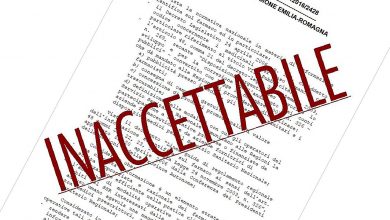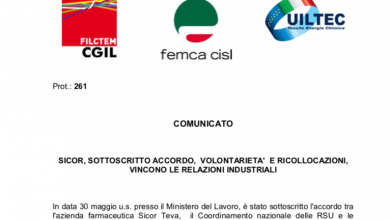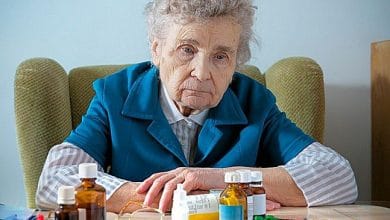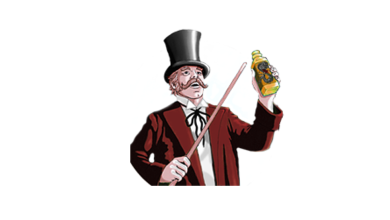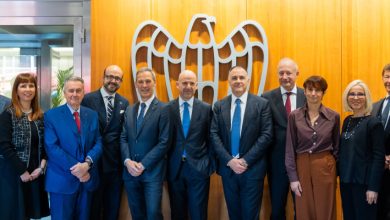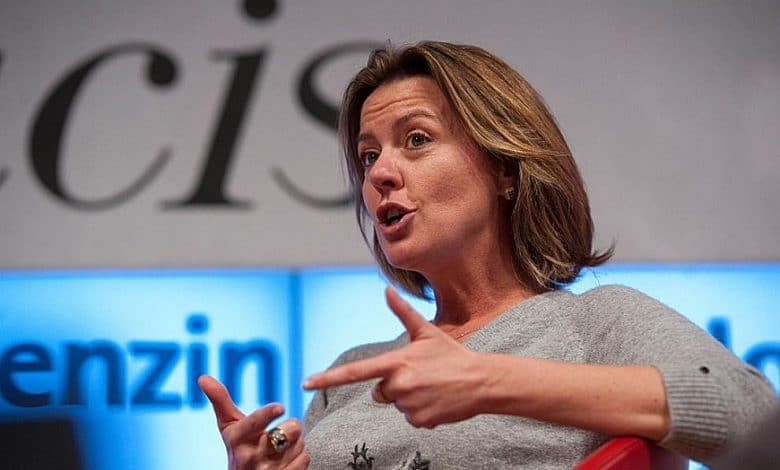
If a pharmaceutical company wants its product, even of a generic type, to be loanable (band A), it negotiates a very low price with the Stao, and prohibits this same product from being sold over the counter. For which the pharmaceutical companies recover and reason with astute common sense: never again will ordinary people waste an hour in the surgery, crumpling greasy magazines, to spend three euros less. If there was free trade, seriously, everyone would save money and waste less time in queues and paperwork. And we would be freer and less squeezed.
– Thu, 14/01/2016 – il Giornale.it
 What are you doing, Minister Lorenzin, are you inviting me to play Checco Zalone and to sit on the generous hump of the Italian State, with a clever little scam, deceiving the doctor or using his complicity to steal two euros from the poor bastards?
What are you doing, Minister Lorenzin, are you inviting me to play Checco Zalone and to sit on the generous hump of the Italian State, with a clever little scam, deceiving the doctor or using his complicity to steal two euros from the poor bastards?
I recap. In France, I buy a medicine for stiff neck in a pharmacy. Back to Italy, same molecule, same quantity of ibuprofen, the price is higher than 300%. I ask the Minister of Health Beatrice Lorenzin for explanations. The minister, who is a friend, replies that if I had gone to the general practitioner to have a prescription made for me, on the basis of «Note 66, totally exempt for the main pathologies», it would have been free.
So yesterday, this time a victim of stiff neck myself, I go to my general practitioner. The doctor palpated my neck, diagnosed stiff neck, confirmed the usefulness of ibuprofen lysine 400mg etc. And he gets ready to make me the recipe with a certain annoyance. I show him the minister's article. He looks at me acidly: «Stiff neck can't be treated for free. Footnote 66 does not include torticollis. If you want, I'll turn a blind eye, pretend you're suffering from cancer and write Note 66 so you can save two euros, but know that you're cheating the exchequer and  invites me to become his accomplice.' He turns on the PC, item Note 66, Ministry of Health: «The prescription of non-steroidal anti-inflammatory drugs paid by the NHS is limited to the following pathological conditions: connective tissue-based arthropathy, painful or inflammatory osteoarthritis, neoplastic pain, acute gout attack ». And he asks me to put myself to the test: «A small sin, a microscopic fake and I write 66?».
invites me to become his accomplice.' He turns on the PC, item Note 66, Ministry of Health: «The prescription of non-steroidal anti-inflammatory drugs paid by the NHS is limited to the following pathological conditions: connective tissue-based arthropathy, painful or inflammatory osteoarthritis, neoplastic pain, acute gout attack ». And he asks me to put myself to the test: «A small sin, a microscopic fake and I write 66?».
The thing is this. And the minister does not say it. In Italy there is a kind of socialist state rule. Which explains why over-the-counter products are so much more expensive than in the rest of Europe. Let me simplify: if a pharmaceutical company wants one of its products, even of a generic type, to be loanable (level A), it gives the exclusive right to the State. Which negotiates a very low price, and forbids this same product to be sold over the counter. For which the pharmaceutical companies recover and reason with astute common sense: never again will ordinary people waste an hour in the surgery, crumpling greasy magazines, to spend three euros less. If there was free trade, seriously, everyone would save money and waste less time in queues and paperwork. And we would be freer and less squeezed.
Lorenzin, in Italy drugs cheaper than the whole EU
HEALTH EDITOR Thursday 14 January 2016 – WEB DIARY
 ROME "The average prices of medicines in Italy are the lowest in Europe, including France". This was reiterated by the Minister of Health, Beatrice Lorenzin, responding in the Giornale to an article in which the journalist Renato Farina recounted his experience on the purchase of ibuprofen in France and Italy, denouncing the triple cost of the medicine in our country.
ROME "The average prices of medicines in Italy are the lowest in Europe, including France". This was reiterated by the Minister of Health, Beatrice Lorenzin, responding in the Giornale to an article in which the journalist Renato Farina recounted his experience on the purchase of ibuprofen in France and Italy, denouncing the triple cost of the medicine in our country.
In some cases the cost is zero
"We won't wish anyone a stiff neck, much less an illustrious compatriot but, if it really were to happen to him abroad, we would advise him to quickly re-cross the national borders and get the medicine in Italy: he would pay half the price - writes the minister -. By contacting the general practitioner or the medical guard, the patient would not even pay anything and our NHS would reimburse the pharmacy 0.14 euros per tablet ». While, he clarifies: "the drug is reimbursed by the French NHS only under particular conditions of income and pathology", "Italian citizens have much more convenient alternatives than their French cousins".
Applause from the minister then to the Italian pharmacist who advised the journalist to consult a doctor: "Not only to avoid paying out of pocket for a drug that can be loaned in Italy but to have a correct diagnosis avoiding confusing muscle pain as rheumatic".
Related news: Possible slowdown in drug price increases in 2016
Ed:
According to ISTAT and Farmindustria data, the new drugs, which on average are made available after about 2 years from their authorization at European level, have lower prices than in other EU countries in 20%.
In the "average" price of medicines in the 5 largest EU countries (Italy, Germany, France, England, Spain), normally taken as a reference, Italy has the lowest prices. Considering 100 the average price of medicines in Italy, the European average is 114.6, in the "market" of pharmacies the European average is 118.9, in the hospital it is 108.0.
Considering the large reference European countries individually (always making Italy 100), the price of drugs to the public in Germany is 139.2, France 116.2, Spain 112.5 and the United Kingdom 100.4.
It should also be considered that to establish the price of a medicine, AIFA itself refers to the average European price of the same medicine. Obviously we are talking about media, not individual drugs. It may be that on some drugs there is the opposite phenomenon.
The phenomenon of parallel exports, precisely because of the lower prices, is particularly worrying in Italy and causes serious shortages of medicines (practically the AIFA communicates shortages almost daily).
It should also be kept in mind that public pharmaceutical expenditure is lower than the average of the large EU countries in the 30% (271 euros per capita compared to 390 in the others); it decreased from 2006 to 2014 by 2%, while total health expenditure increased by 8%, with peaks of over 20% for other goods and services purchased by the NHS; it decreased as a percentage of GDP, in contrast with the other health expenditure items, which in any case grew less than the other public expenditure items.
Another matter for OTC, SOP and veterinary drugs where the price is almost free (it can be reviewed every 2 years by the manufacturers themselves) and the companies apply a sort of compensation.

